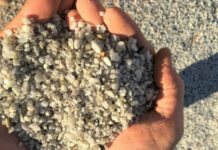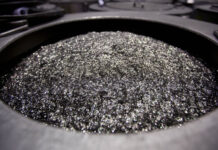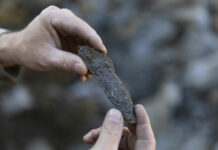
CLIMATE change will increasingly drive tuna into the path of potential deep sea mining operations, said Bloomberg News.
“These projected increases in overlap indicate that the potential for conflict and resultant environmental and economic repercussions will be exacerbated in a climate-altered ocean,” the study states.
The paper builds on previous research forecasting that rising ocean temperatures will cause tuna to migrate eastward toward the end of the Clarion-Clipperton Zone, where mining is most likely to occur, said Bloomberg News.
If mining proceeds, it could damage the $5.5bn Pacific tuna industry in several ways, according to the researchers.
Mining companies plan to send giant robots to the ocean floor — 13,000 feet (4,000 metres) down — to suck up polymetallic nodules, potato-sized rocks rich in cobalt, nickel and other metals, said Bloomberg News.
Mining would spawn sediment plumes that could spread over hundreds of feet or more. Once the nodules are transported to the surface and processed, another plume of mining waste would be released back into the ocean, the newswire said.
“That could potentially be at depths that would impact the breathing and feeding of tuna and the prey that they rely on for food, increase their stress hormone levels and have other consequences,” said Diva Amon, the study’s lead author and a deep sea scientist at the University of California at Santa Barbara.
Tuna health could also be harmed by the release of toxic metals during mining, while noise and light from around-the-clock extraction operations could affect their breeding and migration patterns, said Bloomberg News.











